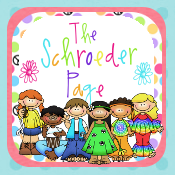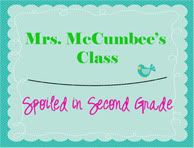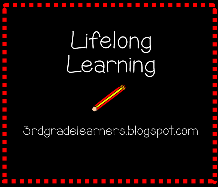I have been working with my teammates to lay out our Everyday Math units for Math Workshop. You may remember that I began math workshop last spring and used it for the last three units of the year. I liked it, and my kids liked it, but it was a lot of work.
I feel confident that I made it a lot of work because I really want to meet everyone's needs during workshop, so my differentiation is on overload. However, I believe that once I find what I want to do for each unit, then a lot of the work will be done. Certainly, I will need to tweak things and add things depending on my students each year, but I am excited to be challenged by them.
I have a number of students who are way above grade level with computation skills. Their families encourage outside tutoring so that they can do math computation skills which are way above grade level. One of my kiddos last year met at the freshman level on the MAP math testing! However, I also have a number of students who lack number sense and math confidence. These guys need my attention, too!
I have decided to implement a Math Notebook next year. (While many others call it a Math Journal, I can't, because in EM, the Math Journal is the name of our workbook.) I am making some guidelines and some foldables to put into the notebook. I am trying to make some generic ones that can be used by the high and below math leveled kids, but I am also making some specific to each group. Our workshop moves quickly, so if I have already prepared the foldable for the kids, I think that it will help things move more quickly. All they should need to do is cut them out (if necessary), fold, and complete.
I am not working to make them cute really, just to make them workable for us. You can see a couple by clicking on the image below. The first one is just Total/Part/Part and looks just like the book's version. I just want the students to fold up the two parts to see that they are equal to the total. It is amazing how many of them don't see that this is the purpose of this graphic organizer. I have used the Thinking Blocks website which helps to help them to see it a little better, too. The fact triangle/house foldable is just a way for them to practice their fact families and glue it into their notebook. They are just my beginning of items for Unit 2. I hope to continue to be inspired to make more. :)
Do you have any ideas or experiences to share with me as I tackle this this summer? I'd love to hear your thoughts!
Showing posts with label math workshop. Show all posts
Showing posts with label math workshop. Show all posts
Friday, June 15, 2012
Sunday, June 10, 2012
Everyday Math Workshop Freebie
So..........I ended last year using math workshop in my classroom. I liked it, and my kiddos liked it, but as with anything new, it took a lot of work! I am working this summer on being proactive and preparing my activities/games now so that I am not trying to find them during the year. A colleague shared the following site recently, and it has some great resources for all grade levels!
We have updated to the Everyday Math "aligned to the Common Core," but it is the same old book with Common Core standards marked into each lesson. It will take me a while to decide what to wean out and what to stress so that my classroom gets deep enough into Common Core. Everyday Math naturally does much of the deep thinking, but I want to be sure to go deep enough into the standards.
Anyway, Chapter 1 is a lot of review, so we move pretty quickly, but I want some activities to go with it. The first one I made is here. If you are familiar with Everyday Math, you will recognize the number puzzles based on the 100s grid. Each puzzle has three parts: An answer key, the puzzle, and the number choices to use with the puzzles. I am going to laminate the puzzle into a file folder, and laminate the numbers. Students can work to complete the puzzle then check their answers. I have tried to make some different levels of puzzles to use.
We have updated to the Everyday Math "aligned to the Common Core," but it is the same old book with Common Core standards marked into each lesson. It will take me a while to decide what to wean out and what to stress so that my classroom gets deep enough into Common Core. Everyday Math naturally does much of the deep thinking, but I want to be sure to go deep enough into the standards.
Anyway, Chapter 1 is a lot of review, so we move pretty quickly, but I want some activities to go with it. The first one I made is here. If you are familiar with Everyday Math, you will recognize the number puzzles based on the 100s grid. Each puzzle has three parts: An answer key, the puzzle, and the number choices to use with the puzzles. I am going to laminate the puzzle into a file folder, and laminate the numbers. Students can work to complete the puzzle then check their answers. I have tried to make some different levels of puzzles to use.
You can click on this image to get the number puzzles.
Hope you can find a way to use this in your classroom. Thanks!
Saturday, March 24, 2012
Everyday Math Algorithm Powerpoints
Have you seen this site with great Powerpoint presentations of Everyday Math algorithms? The site was put together by South Western School District in Pennsylvania. I like to use them at some point during our instruction of these skills in class, but I also like to use them as a reference tool for parents. It makes it much easier for them to understand what their child is learning.
Click on the pic below to go to the home page which contains Powerpoints for partial sums, partial products, trade first, lattice multiplication, and partial quotients.
Click on the pic below to go to the home page which contains Powerpoints for partial sums, partial products, trade first, lattice multiplication, and partial quotients.
Friday, March 16, 2012
Math Workshop--First Unit SUCCESS!
Today, my students took a test in math. As I posted earlier, this is the first unit they have been tested on since I implemented our math workshop. When they finished the test, they were asked to write to me about workshop--whether they liked it, if they thought they learned better...
The results were OVERWHELMINGLY for math workshop. They loved working in small groups, getting more individual time from me, the games and the variation of math activities. I was glad that they liked it so far. I am going to work on putting together my next unit using a similar format.
I like the way it is working out, too. It takes a lot of front-end preparation, but it has gone pretty smoothly. This is a great group of kids to try anything with.
Typically, I have a small group working with me while other groups play games, practice skills independently, or work collaboratively to figure out a new concept. At most times of the class, there are about 3-4 different things going on. Students complete about 3 different activities during the time. I don't have the activity times or the time with me set up equally. Some groups get 20 minutes to do an activity while another group may only get 10. It depends on the activity and the abilities in the group.
Tomorrow morning I am going to score their math tests to see if the assessment results are as positive as the kids' attitudes about workshop. I will let you know.
The results were OVERWHELMINGLY for math workshop. They loved working in small groups, getting more individual time from me, the games and the variation of math activities. I was glad that they liked it so far. I am going to work on putting together my next unit using a similar format.
I like the way it is working out, too. It takes a lot of front-end preparation, but it has gone pretty smoothly. This is a great group of kids to try anything with.
Typically, I have a small group working with me while other groups play games, practice skills independently, or work collaboratively to figure out a new concept. At most times of the class, there are about 3-4 different things going on. Students complete about 3 different activities during the time. I don't have the activity times or the time with me set up equally. Some groups get 20 minutes to do an activity while another group may only get 10. It depends on the activity and the abilities in the group.
Tomorrow morning I am going to score their math tests to see if the assessment results are as positive as the kids' attitudes about workshop. I will let you know.
Thursday, February 23, 2012
Math Workshop tips?
So, we are definitely getting the feeling that we should be moving to math workshop in the next year or two. I have struggled with this a little because I love teaching math, and I think I work hard to differentiate for my learners.
However, being the control freak that I must be, I don't want to wait until I'm told I HAVE TO do math workshop to figure it out, so on Monday, I am beginning my Math Unit 8 trying my own version of math workshop.
However, being the control freak that I must be, I don't want to wait until I'm told I HAVE TO do math workshop to figure it out, so on Monday, I am beginning my Math Unit 8 trying my own version of math workshop.
Here are my current lesson plans for next week. The students will be grouped according to their performance on the pretest. Group 1 will be the kids who require more support while Group 2 will be more independent functioning. The groups will be dynamic as I look at the pretest results. Some days a student may be in Group 1 while on another skill he may fall into Group 2. The items in red mean that they will have my support during this time. The items in black will be asked to work/play more independently while I am working with the others. Some days Group 1 will have me almost completely to themselves...
We will start most days with a short group activity and end them with a quick recap. I have about an hour (give or take) each day for math, and most days are split by a special in the middle of the math block.
What do you think? Am I on the right track? I am anxious to get started and see what happens. Do any of you use math workshop? I will do a follow-up in a week or two to let you know how it is going. I would welcome your comments and ideas!
Subscribe to:
Posts (Atom)














